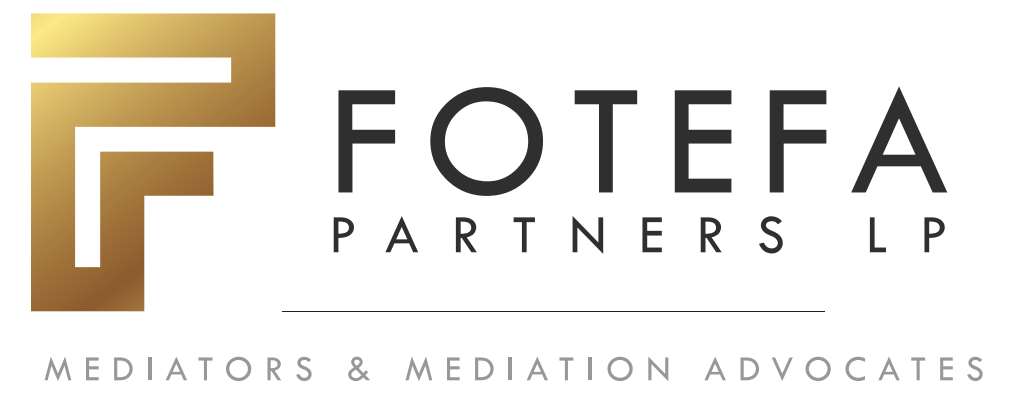Mediation Advocacy is the technique of presenting and arguing a client’s position, needs and interests
in a non-adversarial way.
It is a sophisticated process with its own internal dynamics which recognizes the following;
i. That negotiated outcome of a dispute is usually better;
ii. That parties to a dispute should control it process and its outcome;
iii. That parties to a dispute should be assisted by professional representatives or advisers
(Mediation Advocates) in coming to a settlement that both deals with all matters in
issue and also meets their true needs and wider interests.
iv. That parties to a dispute should have regard to helping the opposite party secure its
need while at the same time preserving their own.
THE ADVOCATE’S ROLE AT MEDIATION
This would be answered under the following headings;
BEFORE MEDIATION
The Mediation Advocate
i. is a legal adviser/ strategist;
ii. provides a realistic perception of the legal positions of both parties;
iii. controls and manages the client’s expectations and best interest;
iv. determines the rights and liabilities of the parties;
v. makes all necessary preparations for the mediation
vi. develops a structured negotiation plan, works out the point at which to settle and how
to get there.
DURING MEDIATION
The Mediation Advocate
i. must support the process by a constructive problem solving approach, not a
confrontational or adversarial approach;
ii. continually evaluates the case and progress of the mediation through the Best
Alternative Towards Negotiation Alternative (BATNA) and Worst Alternative Towards
Negotiation Alternative (WATNA).
iii. protects the client against over- zealous mediators.
AFTER MEDIATION
The Mediation Advocate
i. encourages compliance with the terms of settlement;
ii. Enforces the terms of settlement in event of a default;
iii. Promote the gains of the agreement like the restored relationship of the parties.
Footnotes:* Standing Conference Of Mediation Advocates (SCMA) *The Lagos Multi- Door Courthouse Law (LMDC) 2007*
The LMDC Practice Direction on Mediation Procedure* The Multi Door Courthouse Code of Ethics for Mediators* Guidelines
For Enforcement Procedure *Guidelines for Court referrals to Alternative Dispute Resolution *Principles of Alternative
Dispute Resolution by Stephen J.Ware *Effective Mediation Advocacy by Andrew Goodman.*

